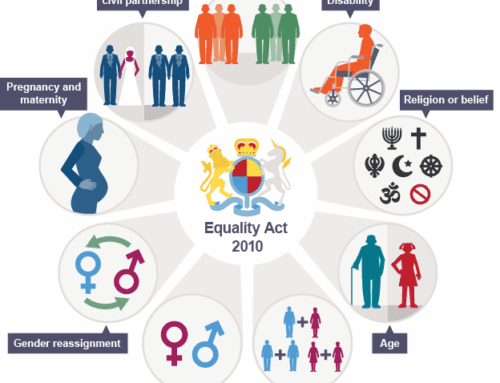By Sarah Atkinson, CEO, The Social Mobility Foundation
I’m lucky to be able to spend time with so many ambitious and inspirational young people as part of my job. But that also makes it harder when we see how many opportunities are still closed off to them.
So, it is heartening to see some positive change in the financial services sector. We’ve seen Progress Together set up, leading to robust data collection and better awareness about the barriers faced by those from lower socioeconomic backgrounds. And, just before Christmas, the Financial Conduct Authority included the voluntary collection of socioeconomic background data in its proposals for diversity and inclusion in the sector. Along with the co-signatories of our open letter to the regulator, we hope to see them go further, making gathering this data mandatory.
Class pay gap
But collecting data is only the first step. Once a problem is understood, it needs to be addressed, and there is still some way to go here. The finance sector has the largest class pay gap of any profession, with those from lower socioeconomic backgrounds paid £17,500 less per year than their more privileged peers on average.[1] And people from working class backgrounds are both underrepresented in the workforce and progress more slowly, despite performing just as well.[2]
Instead of people getting in and getting on based on their talents and ability, it’s more often about their background – where they’re from, where they went to school or what their parents did. And that’s a big deal. Not only for the individuals that are held back, who face barriers in achieving their dreams, but also for business. Addressing this inequality means the best people get into the top jobs and our financial institutions are both stronger and more representative of society.
With the scale of the issue clear, many organisations need to know how to make their workplaces more accessible and inclusive. While making meaningful change can be daunting, there is a wealth of experience available for employers to draw from. At the Social Mobility Foundation, we have run our Social Mobility Employer Index since 2017. It’s the leading authority on workplace-led social mobility: an assessment tool that offers bespoke feedback and practical advice to help employers benchmark and improve. It also offers the much-coveted opportunity to be named one of the top 75 employers for action on social mobility.
Skills and potential
Last year, we saw a number of top financial institutions near the top of the pile. Schroders, for example, is a leader in this space: it has made substantial changes to the way it assesses talent to create a recruitment process that focuses on skills and potential, rather than grades or university prestige. It removed minimum grade requirements for all roles and hides candidates’ CVs from recruitment managers until the assessment stage, reducing the potential for unconscious bias. Instead it uses gamified assessments that are informed by the performance data of current employees.[3]
BlackRock is another social mobility champion, creating over one hundred mentoring relationships since 2022 to ensure those from lower socioeconomic backgrounds have access to the same careers advice as those with connections.[4]
Social Mobility Employer Index
Entries for the 2024 Index open on 12th March, and I’d love to see even more financial services firms take part this time. To encourage this, we’re offering optional additional analysis specifically aimed at the financial sector. And because we know that organisations at the beginning of their social mobility journey can be worried about how they’ll do, entry to the Index can be anonymous. But I think, wherever you start, progress is something to shout about. Last year’s Index saw 37 organisations publish their socioeconomic data and it will be exciting to see how many more will do so this year.
Perhaps the biggest reason to take a proactive approach to social mobility is that it really matters to young people, your future employees. In our survey of young people’s attitudes, banking, financial services and insurance was the most popular sector for those from lower socioeconomic backgrounds, but over 70% said that the Class Pay Gap put them off getting a job in the elite professions of finance and law.[5]
Opportunity should be available to everyone, regardless of where they grew up, where they went to school or their family’s occupation. Financial institutions are the pillars of our economy, and if they are to remain innovative and competitive, we must ensure that they are accessing and progressing talent as broad and varied as our society.
Sarah Recommends
The Social Mobility Employer Index – The Social Mobility Foundation
Levelling the playing field: New practical guide for closing your socio-economic pay gap – The Bridge Group
Financial and professional services toolkit – Social Mobility Commission
Open letter to the Financial Conduct Authority and Prudential Regulation Authority, published in the Financial Times – The Talent Foundry, Social Mobility Foundation, Reclaim, upReach, Snowball, Progress Together, Co-operative Group, The 93% Club, SEO/London
Gender pay gap reporting has reduced inequality – now it’s time to do the same for class – Alan Milburn
Sources:
[1] Friedman, S. and Laurison, D. (2020). The Class Ceiling: Why it Pays to be Privileged. Bristol: Bristol University Press. pp54
[2] ‘Shaping our Economy’ data report launch – Progress Together
[3] Social Mobility Foundation – External – Social Mobility Employer Index – Key Findings Report 2023.pdf (sharepoint.com), p.23
[4] Social Mobility Foundation – External – Social Mobility Employer Index – Key Findings Report 2023.pdf – All Documents (sharepoint.com), p.29
[5] Social Mobility Foundation – External – The Social Mobility Foundation Unheard Voices 2023.pdf – All Documents (sharepoint.com)





